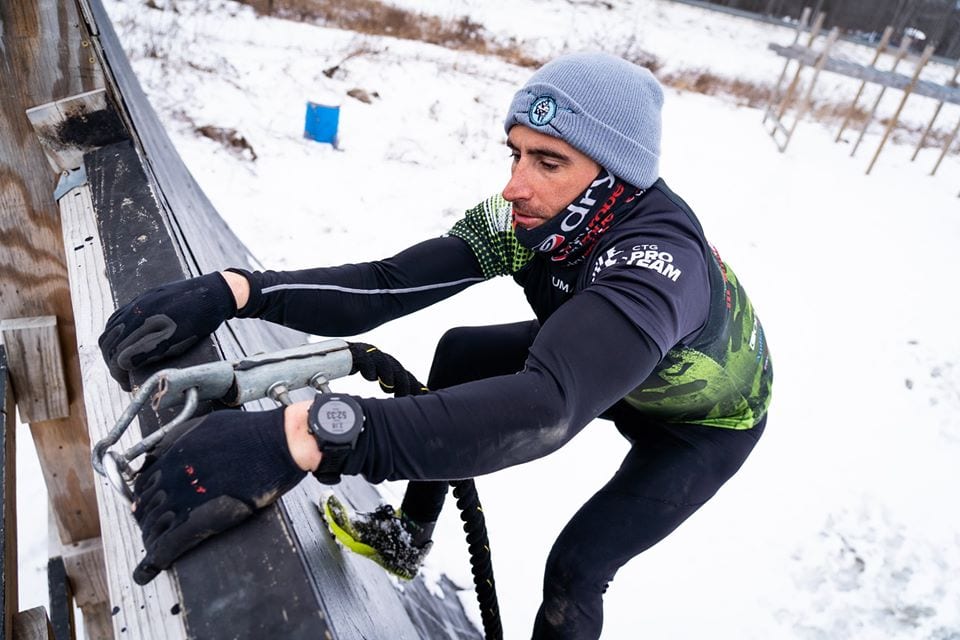
MudGear MadGrip gloves, dryrobe buff and base layer of Marena sport at Erie's OCR Battlegrounds in PA.
At the end of January, I set out to run a marathon-length Obstacle Course Race (OCR) type run at eight different venues in eight days in a row. The event stretched between New York and Kansas City, stopping at venues along the way (thanks to Enchanting Getaways, a travel agency owned by the wife of an OCR Pro, for the travel arrangements!). Along the way, I covered 200 miles by foot, completed 1000+ obstacles and raised more than $6000 for the charity Folds of Honor (scholarship money for children whose parents were killed or wounded in action, donation link is still open here).
The event required bringing an insane amount of gear to prepare for all contingencies and situations. Often one piece of gear we get soaked and/or frozen so multiple types of each were required for the weeklong event. Here’s a quick rundown of what I brought that allowed me to succeed in wintertime OCR conditions.
Footwear:
Four pairs of shoes that fit very well and don’t cause blisters. I went with two pairs of Merrell All Out Crush 2 (my go to Ultra-OCR shoe), Icebug RB9X (my OCR shoe with the best traction) and Saucony KOA ST (almost waterproof outside good traction and extra padding).
Footwear Accessories:
YakTrax (rubber overshoes allowing you to run on ice and snow) and snow shoes (brought in the event of a snow storm…luckily I didn’t have to use them so I can return them now since they were $130 each)
Socks:
MudGear socks both long and short. On really cold days I doubled up with a long set of MudGear underneath and a shorter version on top. I also brought neoprene socks but never used them.
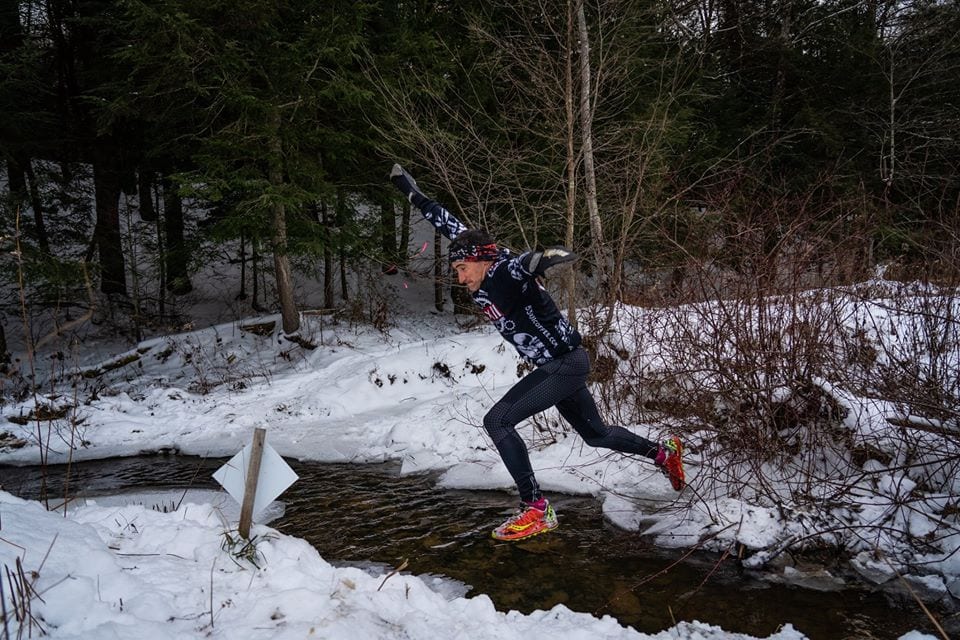
Saucony shoes, double MudGear socks, compression pants, BleggMits, dryrobe buff and Hammer Nutrition cycling top at Newbsanity Extreme Ravine.
Compression Pants/shorts:
Marena Sport compressions pants and shorts since they are the only ones I have worn at World’s Toughest Mudder and not chaffed. Also, wore some Hammer Nutrition Triathlon compression shorts as underwear on really cold days. Just to play it safe, anyone that was running that day applied a liberal amount of Squirrel’s Nut Butter to prevent chaffing.
Shorts:
Several events were run in gyms (1 mile outside and four obstacles repeated), so I wore MudGear shorts that include a liner, pockets and a zip pouch on the back to hold gels.
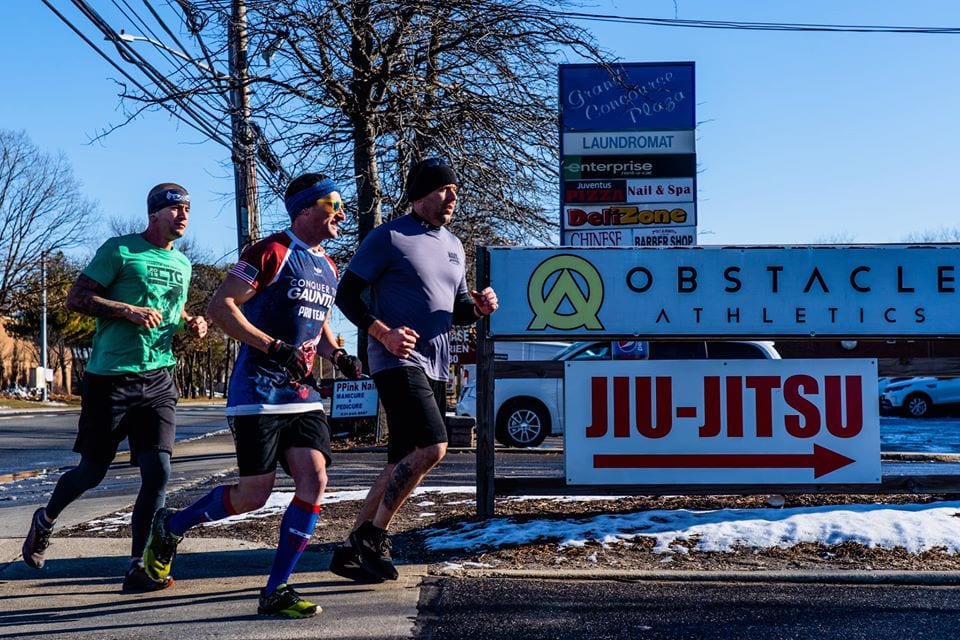
MudGear shorts and socks with Goodr sunglasses for one of the few days of nice weather at Obstacle Athletics gym in Long Island, NY.
Tops:
Akuma Conquer The Gauntlet Pro Team race jersey as a base layer or the MudGear race jersey for warmer days. For really cold days I wore Neptune Top (shirt with pockets for heated hand warmers) worn against my skin to keep me warm. Layered Merrell long sleeve compression top above it and wore a Hammer Nutrition cycling jersey and/or windbreaker as the outer layer. The cycling jersey allows you to put gels, hats, gloves or other accessories into back pockets that don’t bounce around while running.
Jacket:
For the last couple of days, I utilized the Ororo Heated Jacket (an electrical powered heated jacket with several heat zones). On a side note, my pit crew wore these daily to stay warm between laps.
Sunglasses:
If your eyes aren’t squinting at the sun, you can relax your face, which helps relax the rest of your body. I wore Goodr sunglasses on bright days, which are low cost, effective, don’t bounce and are stylish.
Hats/Buffs:
I had about half a dozen wool hats and buffs with me so I could change out if needed whenever one got wet. I ended up wearing one or two each day to keep my ears, head, and neck warm.
Gloves:
Most days I used BleggMit Lytes (1mm) or Extremes (3mm) neoprene mittens. The gloves are designed for bad weather OCR and are hands down the best on the market. On days when the weather was warmer, I wore RockTape Talons to protect my hands or MudGear’s madgrip gloves. Both provided grip while also protecting my hands resulting in zero open wounds or torn calluses for the entire week. Pre-event I had also toughened my hand and worked on grip strength thanks to products like Fat Gripz and Atomik Climbing Holds.
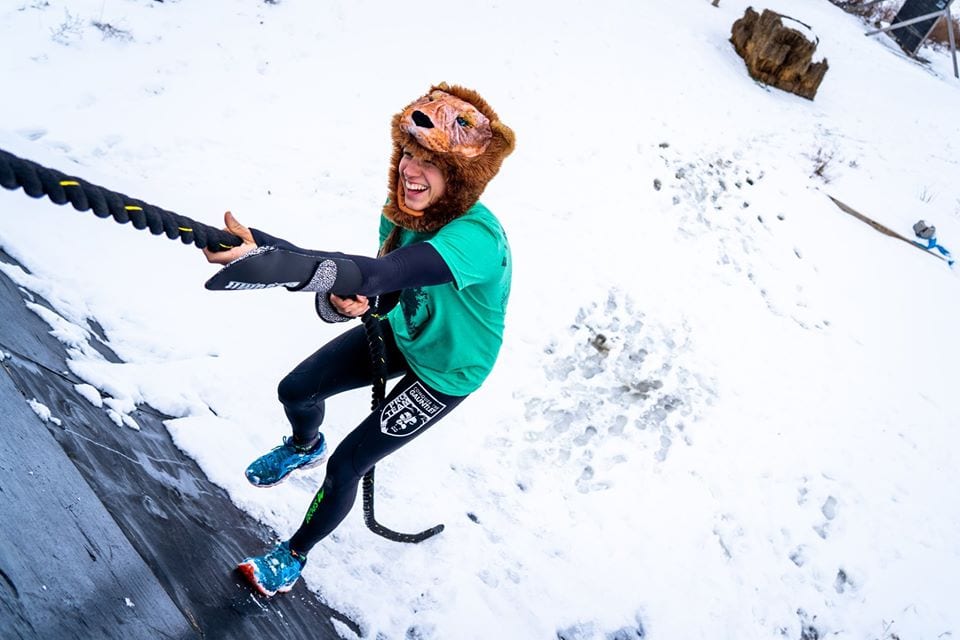
Pacer and CTG Pro Amy “Magic” Pajcic conquering an obstacle with ease thanks to her BleggMits…and lion hat.
Contingency:
As my muscles weakened and nagging injuries arose I used a copious amount of RockTape Edge (pre-cut strips) to hold my body together. The small size of a roll, the versatility and its ability to survive the worst conditions without falling off were key.
Nutrition:
Pre-event I used InsideTracker (see review here) to fine-tune my training and nutrition. For fuel, I primarily used Hammer Nutrition Perpetuem (a carb/fat/protein blend) that I use for all my Ultra-OCR, plus gels. I also used Anti-Fatigue Caps and Endurolyte Extreme pills at the end of each lap. As the event wore on I mixed in more solid food for variety in taste and calories as well as Elite Ops Energy Strips for caffeine to keep me awake/motivated.
Post-Race
Gear/Clothing:
After the race, I would change into dry clothes including my super soft HYLETE pants and OOFOS shoes. The HYLTE pants are very comfortable making me feel relaxed at the end of the day. The OOFOS shoes reduce impact by 37% and the top stretches so even if you have blisters it won’t cause irritation. To stay warm I would also put on my dryrobe and get back into the car with the MudGear seat cover to keep the rental van clean. Then at the end of the day I would put on Rapid Reboot compression pants (they inflate by zones to circulate blood) and use Compex Fixx 1.0 massage gun to target any point problems I was having.
Nutrition:
My pacers also had to stay fresh and ready to go so we used Hammer Nutrition Recoverite (carb/protein blend with L-Glutamine) immediately post-race to kick start recovery, then a healthy meal within the hour plus some Yolked (“protein’s perfect partner”, read the review here) and used Hammer Nutrition REM Caps to try to help me sleep deep at night. My crew also utilized some Juice Performer Cherry juice to reduce post-event inflammation.
I somehow managed to cram all this stuff into my HYLETE bags and then we took my crew’s bags (my dad Terry Perperis, our driver Strength & Speed’s Jacob Stone, Obstacle Running Adventures podcast host Mike Stefano and our videographer Stoke Shed’s Bobby Ross) and crammed it all into a van. It was a lot of stuff and I used almost everything showing that you can never be too prepared, especially in winter time. Looking back, I didn’t have anything that I regretted bringing or thought I should have brought item X also. For all Ultra-OCR, you should prepare for the worst and pray for the best.
If you missed the event or want to see all the gear in action, check out my recap of the full eight days, including video footage by Stoke Shed.
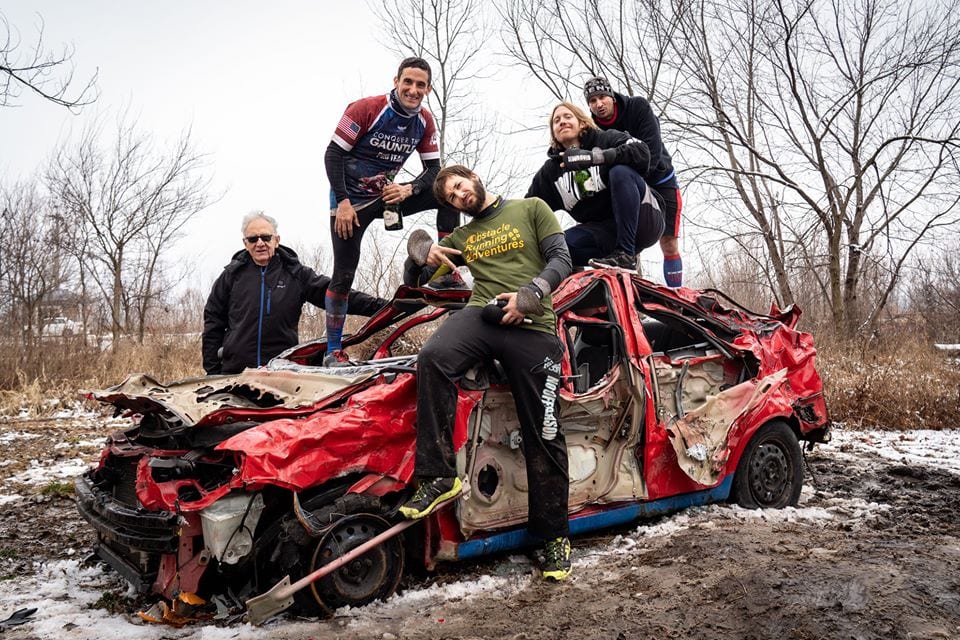
OCR America crew: (L to R) Pit crew Terry Perperis, Evan Perperis, Obstacle Running Adventures podcast host/pacer Mike Stefano, Stoke Shed filmmaker/pacer Bobby Ross and driver/pacer Jacob Stone.
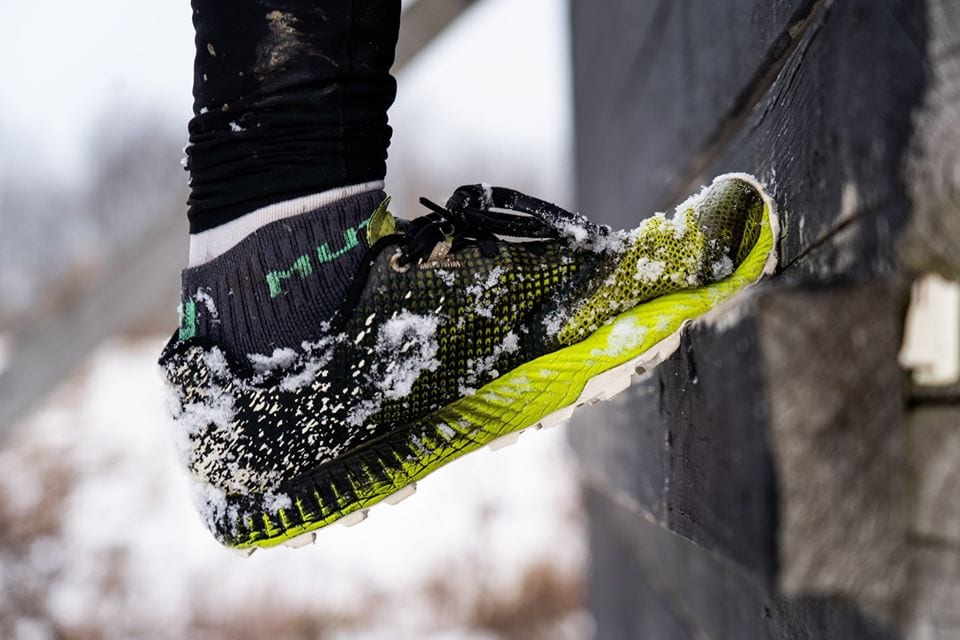
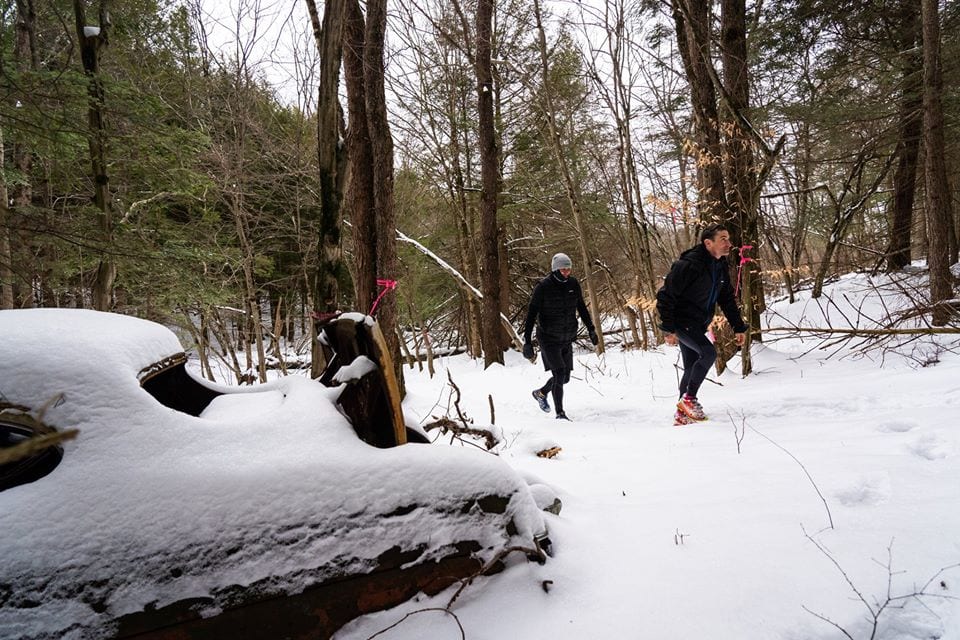
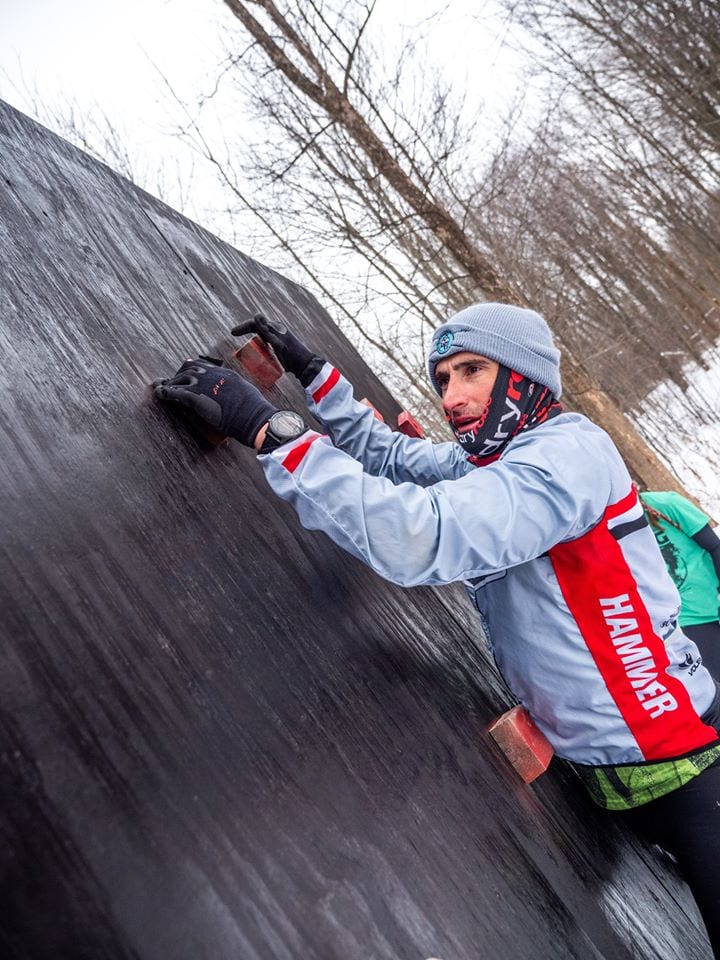
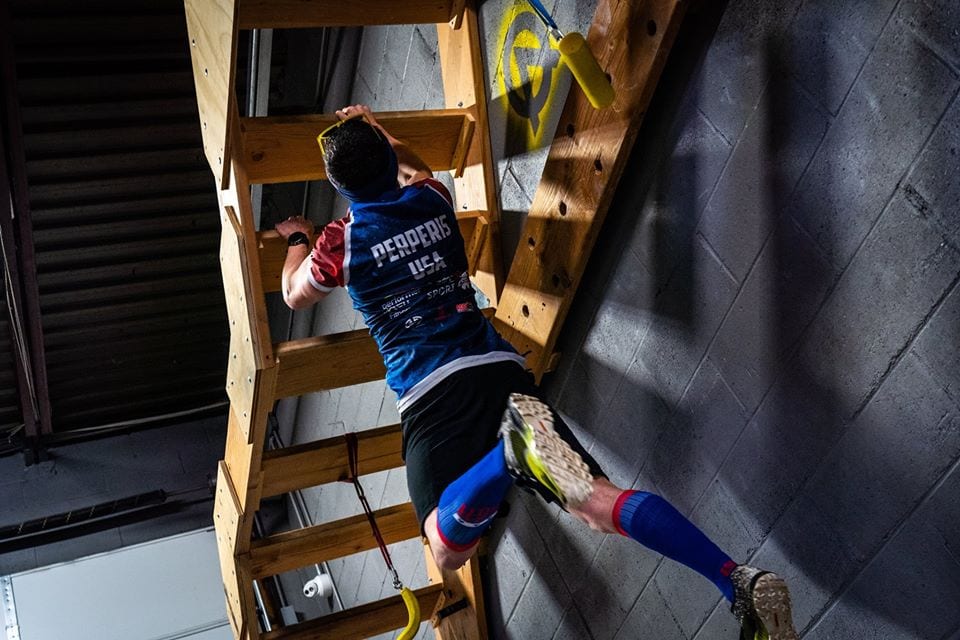
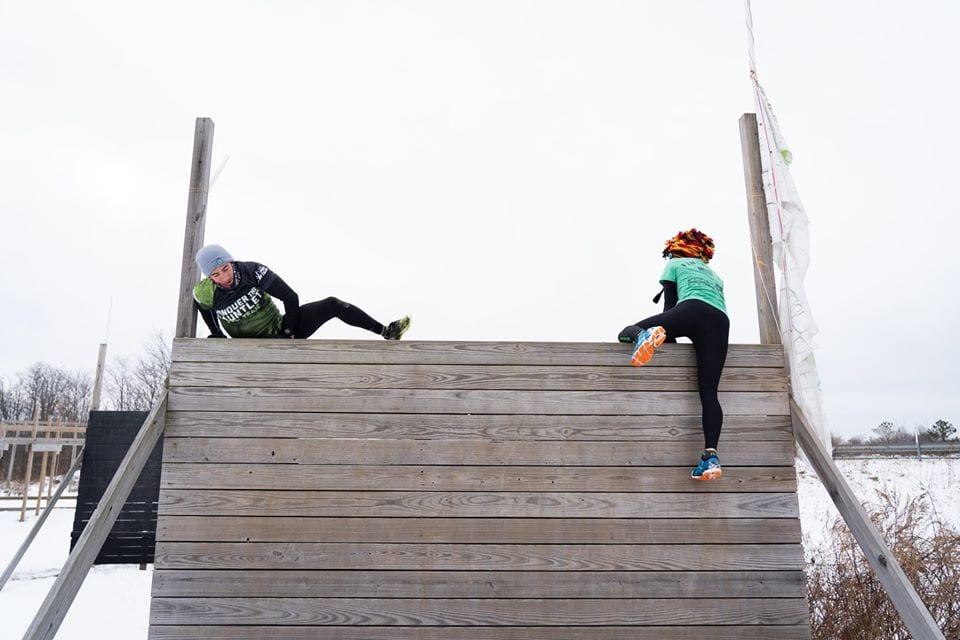

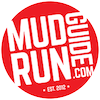
Leave A Comment